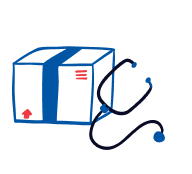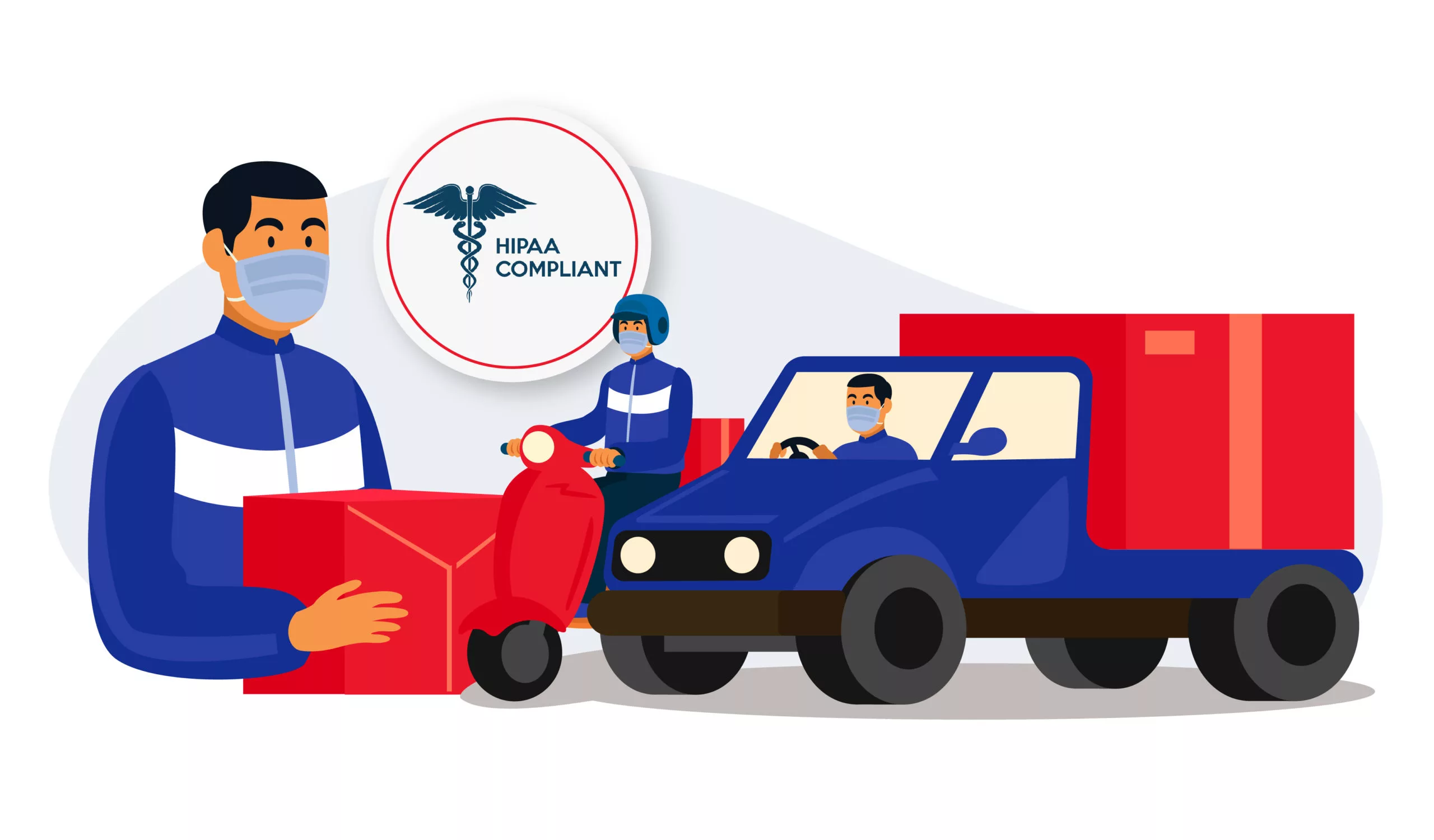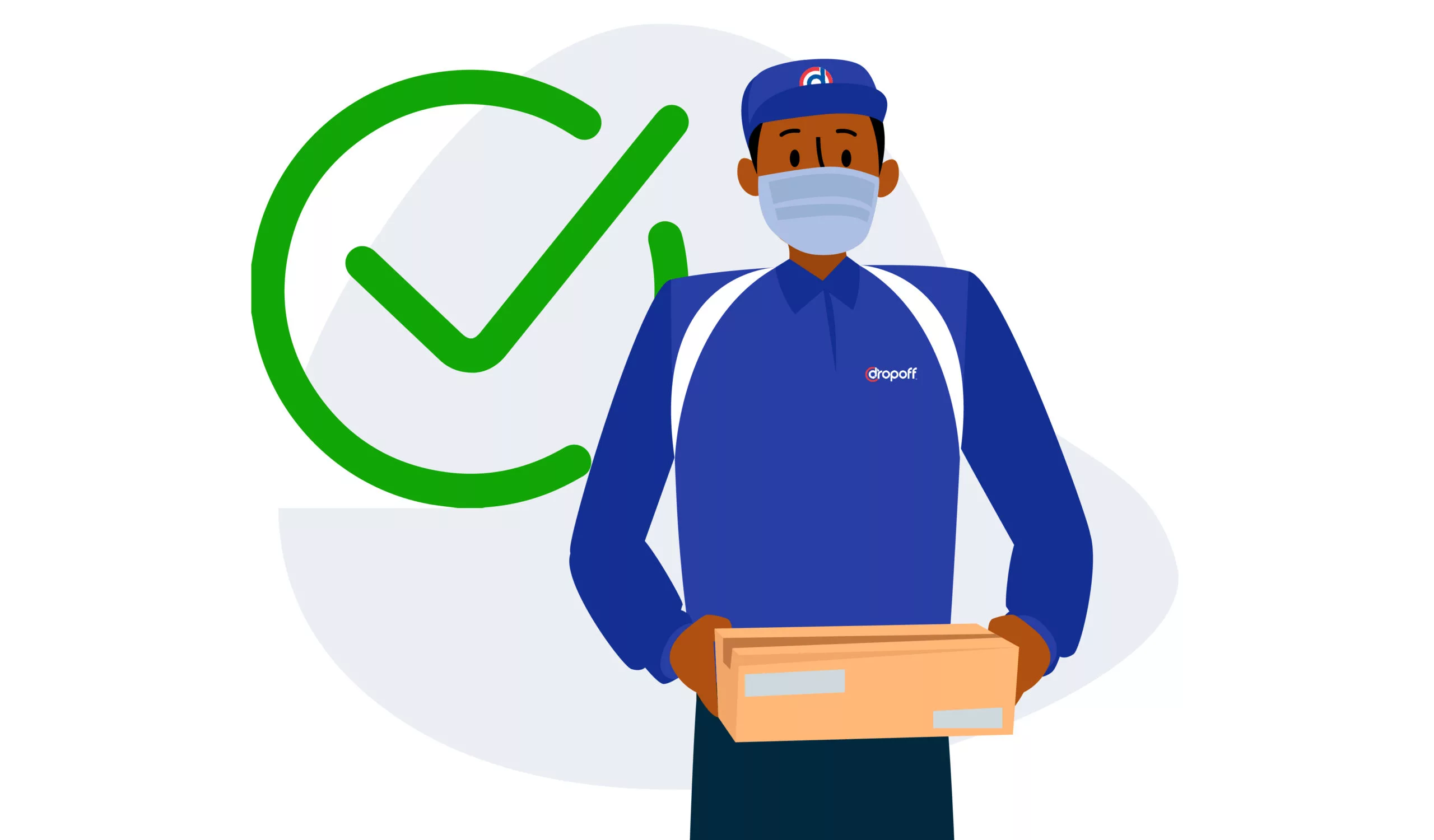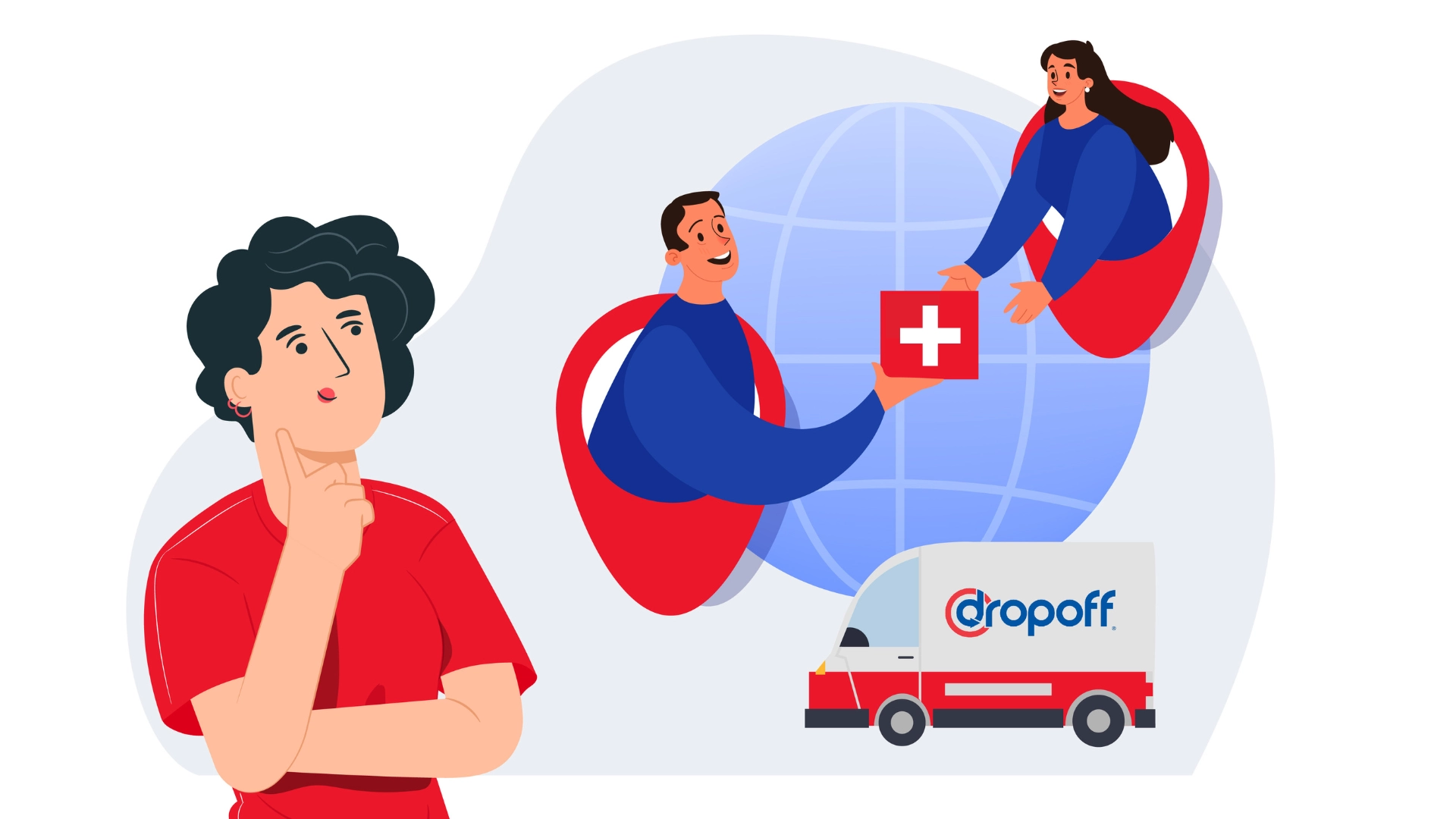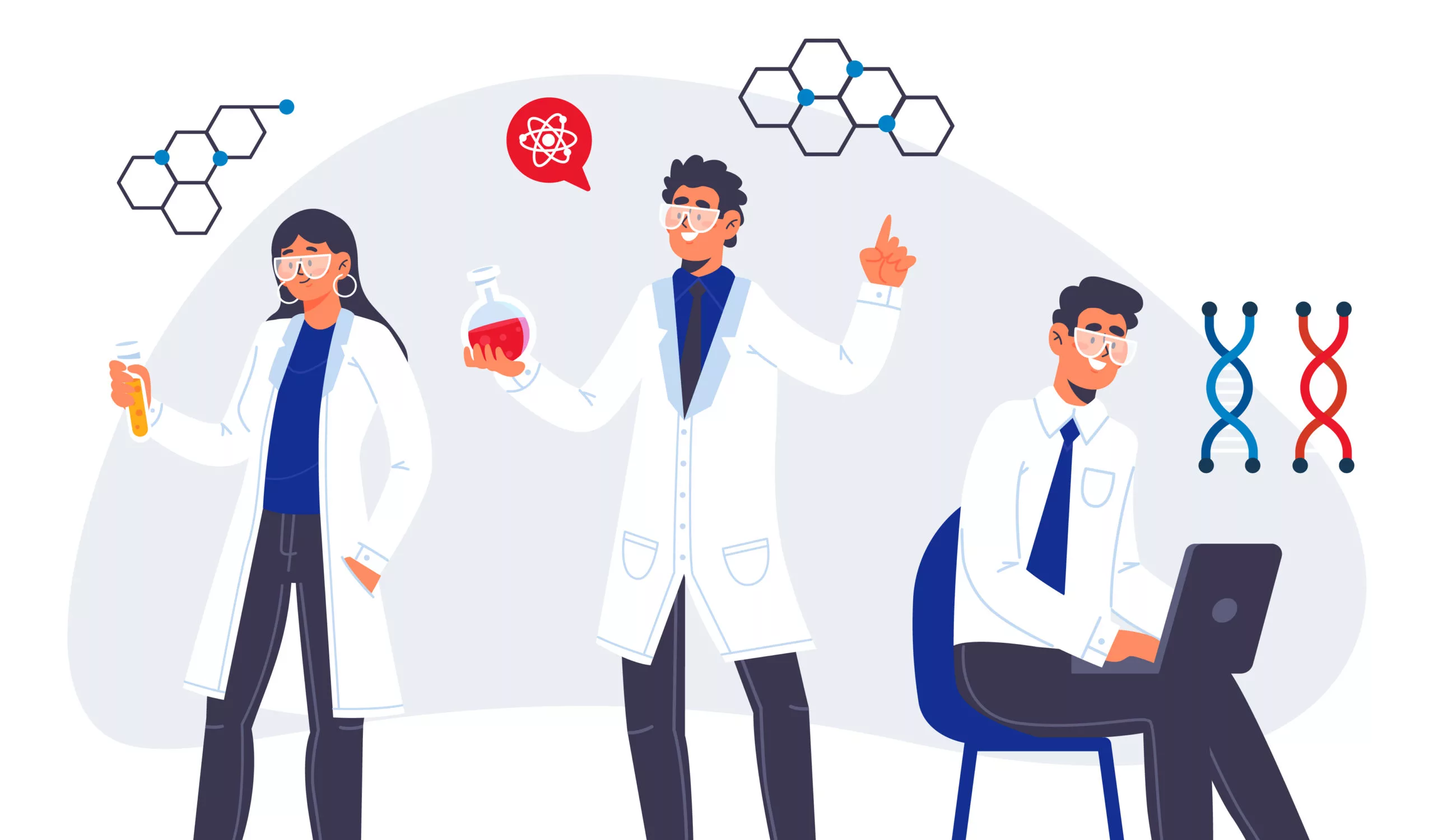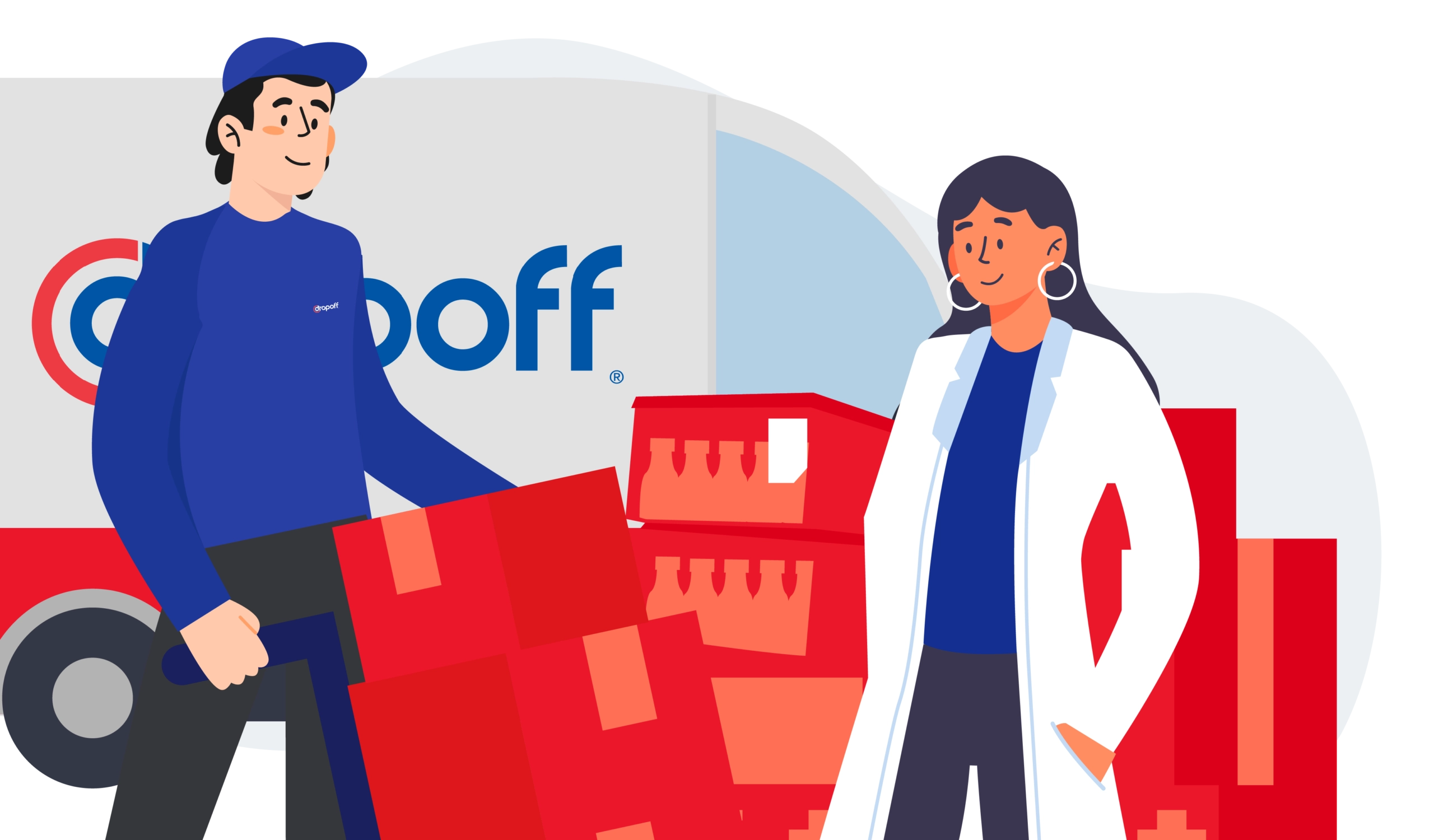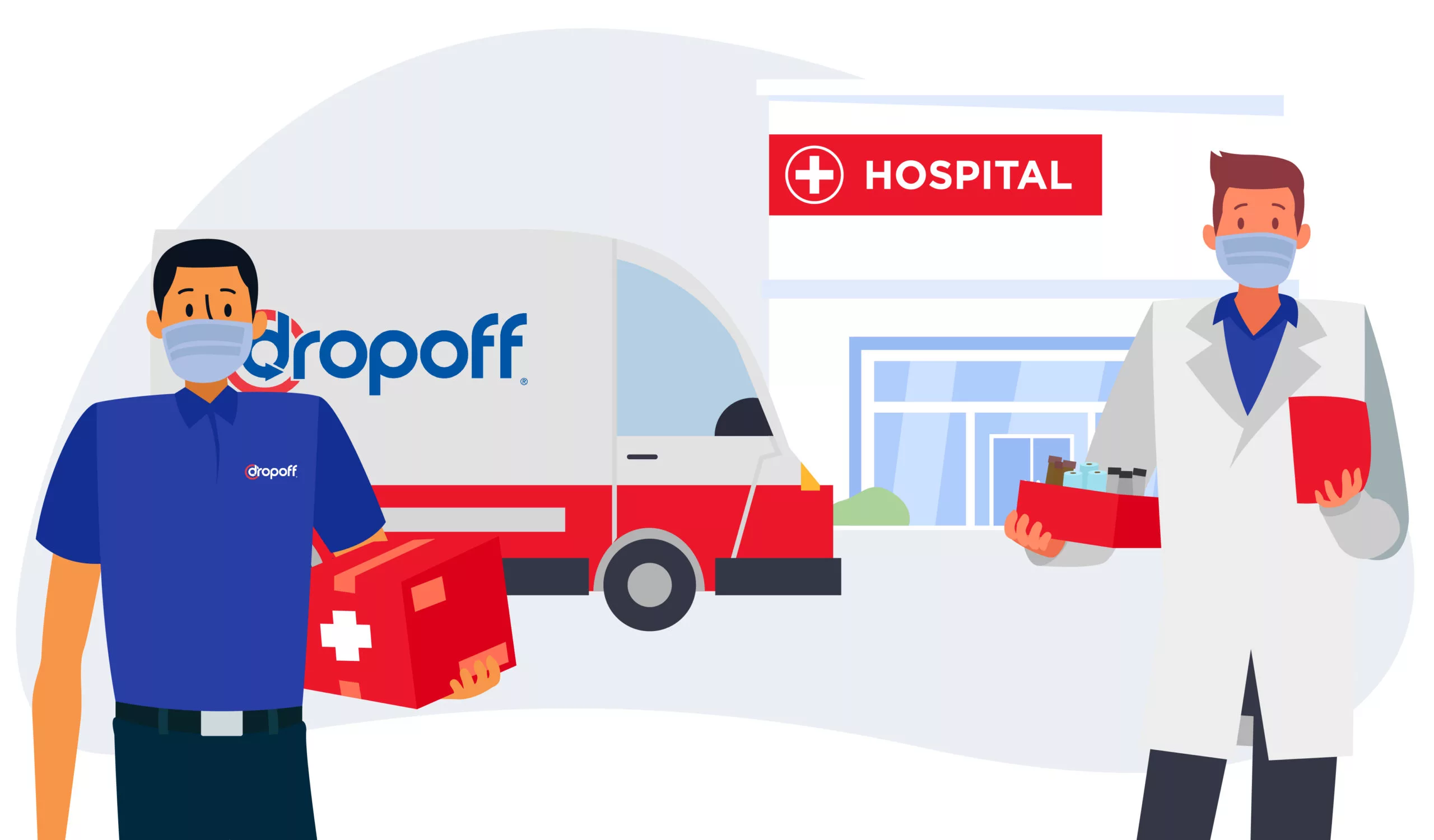Everything You Need to Know About Pharmaceutical Security Labels

Pharmaceutical security labels are an important part of the pharmaceutical industry. They help to protect products from potential counterfeit and ensure that patients are getting the correct medication. In this blog post, we will discuss everything you need to know about pharmaceutical security labels!
What Are Pharmaceutical Security Labels?
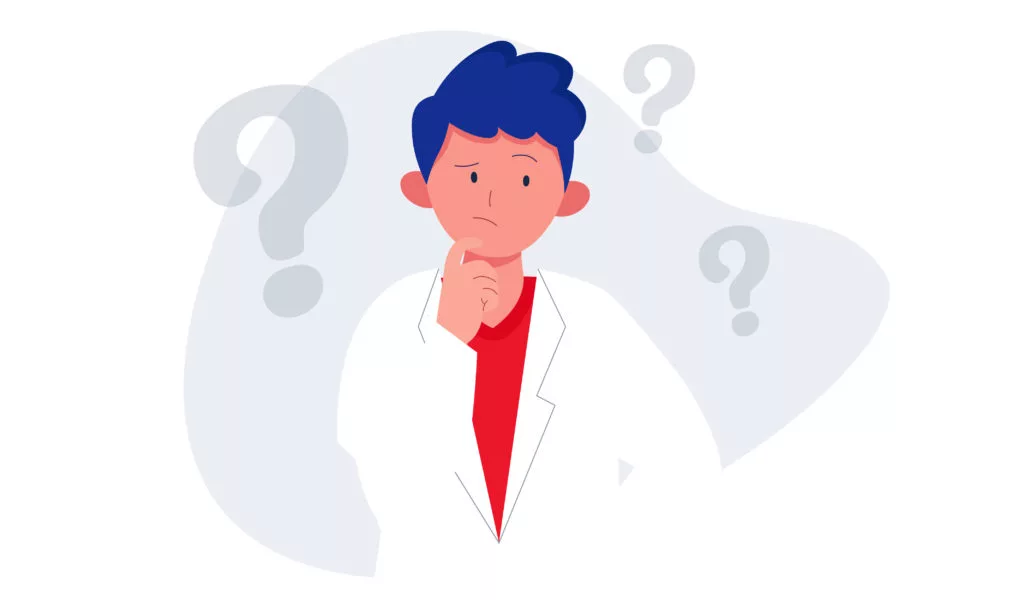
Pharmaceutical security labels are labels that are applied to pharmaceutical products in order to deter tampering and unauthorized substitution. These labels typically incorporate one or more security features, such as tamper-evident seals, holograms, and unique numbering.
These security labels are an important part of the supply chain management process, as they help prevent product tampering prior to reaching the end-user. In addition, these pharmaceutical labels can also help to track and trace pharmaceutical products in the event of a recall.
Why Are Pharmaceutical Security Labels Important?
Put simply: security label technology can help pharmaceutical brands run more efficiently, prevent loss and counterfeiting, and manage inventory.
Whether it be medical specimen shipping or drug-store product shipping, these security labels on pharmaceutical products can save a lot of time and energy when things go wrong in transportation.
Tom Erickson, vice president of manufacturing at The Label Printers, says that the labeling of pharmaceutical products is a very affordable and versatile way to add anti-counterfeiting features to them.
Labels can have features to prevent counterfeiting, like micro-printing, invisible inks, and taggants.
Taggants are chemicals that help identify a material. Other features that can identify a product include holography, color-shifting inks, serialization, and barcodes.
Barcode technology can be used with writable databases to create track-and-trace systems. This way, you can follow a product’s supply chain from the factory to the end-user. Moreover, it is more practical to use two or more of these technologies on one label.
As mentioned above, managing inventory is also one of the processes made easy by pharmaceutical packaging and labeling, which would greatly benefit, for instance, closed-door pharmacies.
Types of Pharmaceutical Security Labels
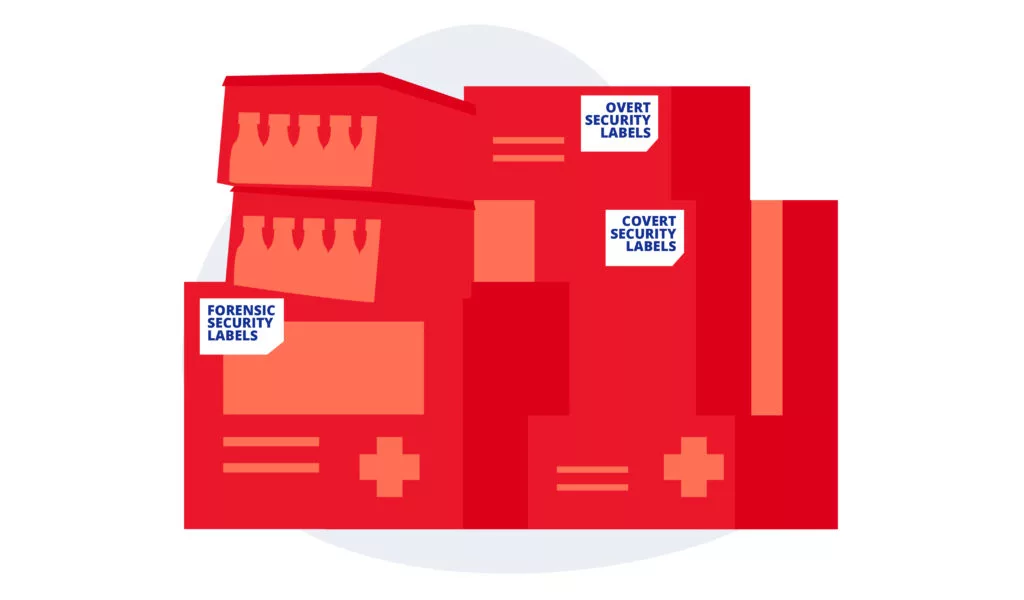
There are three types of security labels:
- Overt security labels
- Covert security labels
- Forensic security labels
Package component changes within these three basic categories can be modified to one (or all) of the four areas below, adding extra layers of protection:
- Ink – A substance with special physical or chemical features that allow it to react to changes in the environment.
- Substrates – Depending on the material composition and availability, paper/plastic choices can provide security on their own. Secondary characteristics include physical/chemical sensitivity, specific fibers, threads, and watermarks.
- Chemical Additives – Chemicals and/or taggants that produce a response from a medium.
- Designs – Hard to recreate without the printing equipment, formula, and printing technique.
Overt Security Labels
Overt security measures are visible to the naked eye, covert measures are harder to spot, and forensic measures use special techniques to identify the label.
Some features that you can see on a bill are watermarks, holograms, and tactile effects.
In general, overt security features are visible to all, but they are hard to duplicate authentically, especially when they feature many security elements.
Covert Security Labels
On the other hand, covert features might require special equipment to find or read. This might include fluorescent or phosphorescent markers, infrared inks, and tamper-proof labeling.
Counterfeiters will be unable to spot covert features. To recognize covert product markings, you’ll need training and experience. As a result, covert brand protection makes it extremely difficult to fully copy products.
Forensic Security Labels
Forensics is the highest form of security. They require specialized laboratory equipment to analyze or confirm authenticity.
Forensic measures can include taggants, chemical agents, or even biological DNA. One would have to destroy the label so that the testing can be complete and definitive.
Pharmaceutical Labeling Requirements
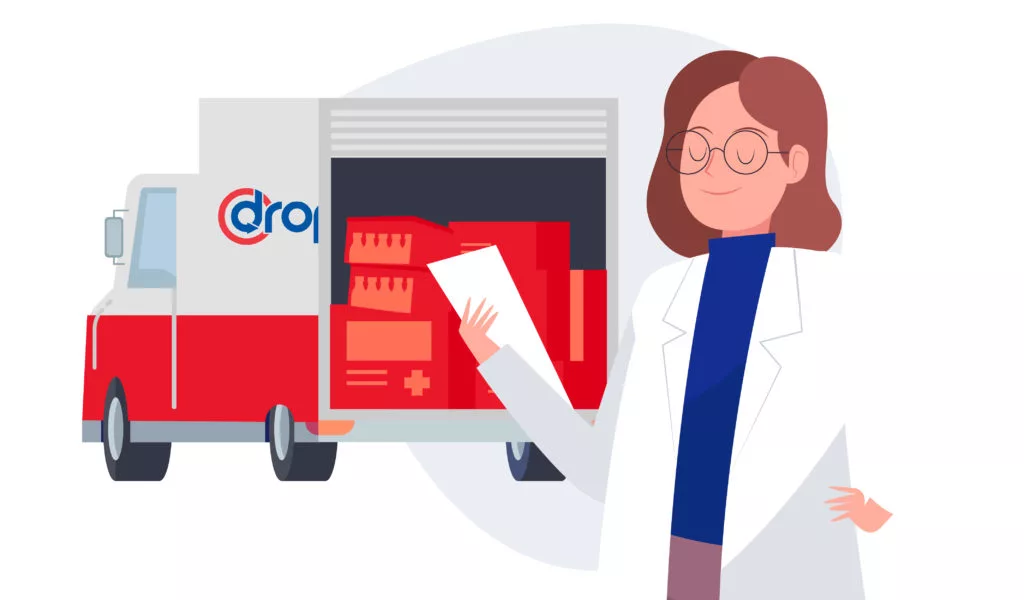
1. Serial Numbers on Products
All pharmaceutical labeling introduced to the market must contain a unique, individual serial number to comply with the Falsified Medicines Directive. Official organizations generate the data, which then stays in a database. In fact, many other markets are considering or have already implemented similar methods.
2. Track & Trace Feature on Products
Where did the product come from? Who created it? In many markets, a drug’s journey from the maker to the end customer must be fully traceable at all times. This allows you to record the product’s entire journey through the supply chain in real-time. Further, the product must also have an identifiable serial number.
3. Aggregation of Products
Aggregation, unlike individual package serialization, is not a legal requirement.
However, it has another benefit for pharmaceutical companies: establishing a link between specific items and logistical units makes tracing the journey of individual medications much easier. This makes it easy to plan recalls and report stolen goods, for example.
4. Tamper-Evident Labeling
When using transparent tamper-evident labels, the glowing particles in the glue can adjust to allow a UV sensor on the labeling device to sense the difference between the folded box and the label. This allows you to verify the tamper-evident labels.
A camera system or contrast scanner can perform this control function on a printed tamper-evident label.
If none of these work, gloss sensors can identify any change in gloss between the folding box and the tamper-evident labeling labels, and identify if the labels are present.
5. Compliance with GMP Standards
Quality control is key in the pharmaceutical industry, with direct effects on patient safety. A quality management system that follows GMP (“Good Manufacturing Practice”) guidelines help to ensure product quality and compliance with regulatory standards.
Another similar standard is GAMP (Good Automated Manufacturing Practice). It offers guidelines for codes and programming machine controls — which are not lawful. Its goal is to remove problematic operations immediately.
Wondering how to start your own pharmaceutical delivery service?
Check out our guide on launching your own same-day medicine delivery service.
The Role of Pharmaceutical Security Labels in Transportation
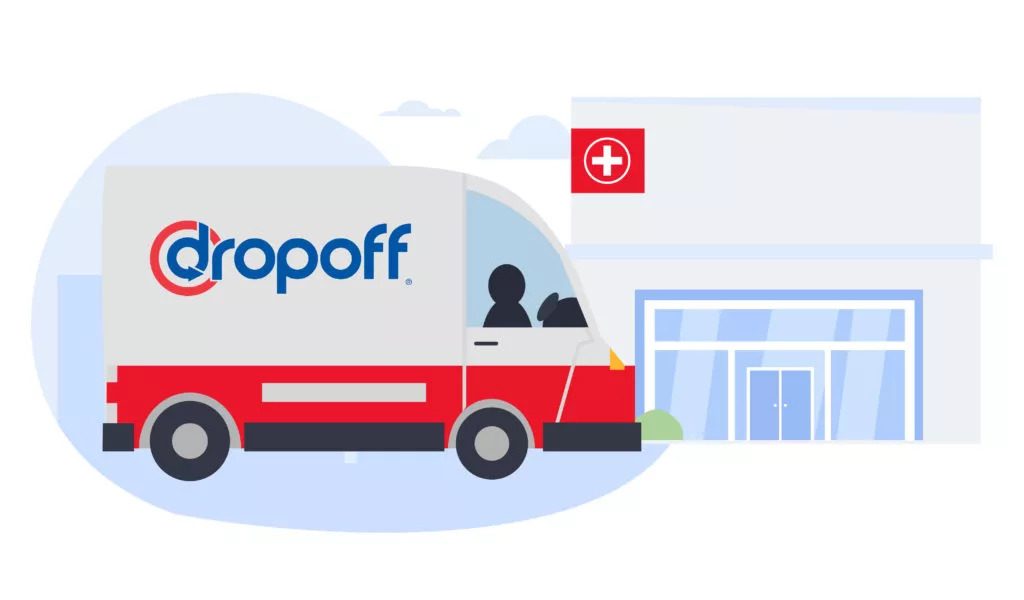
Pharmaceutical security labels are an important part of product transportation. They help to prevent tampering with products during transport.
These labels can help to track products and prevent potential theft. Pharmaceutical companies often use barcodes and other tracking technologies to secure their products.
A lot of tracking systems are available for manufacturers experiencing supply chain challenges. Charms, taggants, security pigments, color-shifting inks, and holograms are examples of adhesive and film components that can be traced throughout the shipping process to help ensure the integrity of your supply chain or identify weak spots. 2D barcodes and radio frequency identification (RFID) labels, which are scanned and logged to ensure compliance, are similar.
Companies That Provide Security Labeling Solutions
- Avery Dennison – A company that makes products like pressure-sensitive adhesive materials, apparel branding labels and tags, RFID inlays, and medical products.
- UPM Raflatac – A global supplier of label materials for branding and promotion, information, and functional labeling.
- CCL Industries – A global leader in supplying innovative premium packaging, promotional vehicles, and comprehensive label solutions for the world’s largest consumer, agricultural, and healthcare corporations.
- Reynders – This company provides custom labels for all types of products with seven European production facilities in Belgium, France, Poland, and Spain, as well as one in India.
- MCC Label – A global supplier of premium label solutions based in Australia.
- Denny Bros – A world-leading print company, specializing in the design, print, and delivery of high-quality multi-page labels for a broad range of industries.
Pharmaceutical Shipping & Logistics
The pharmaceutical shipping sector has always faced tight regulations. Many factors must be considered during the supply chain process to ensure that the products are not damaged and that shipping standards are followed. When it comes to transporting high-value goods, couriers must know how to ensure their safety.
Shipping pharmaceuticals comes with many risks. In addition to the importance of pharmaceutical security labels, carriers must be proactive throughout the delivery. Further, it is very important to choose a third-party logistics company that has ample experience in pharmaceutical shipping.
When you work with a third-party logistics company, it’s equally important that they are able to guarantee the speed of delivery for your patients. Especially when you consider the role speed plays in quality patient care.
Additionally, medical lab businesses should consider same-day delivery services as it has their own thread of advantages, including increased customer satisfaction and higher logistics efficiency. Check out our guide on how to launch a same-day delivery service for your medical lab business.
One of the most effective prevention practices for pharmaceutical products is to follow appropriate security labeling processes, like the ones mentioned in this article. These are not meant to replace quality theft prevention practices but are a great step in ensuring delivery security.
Bottom Line
At Dropoff, we understand the importance of shipping products safely, which is why we offer a range of services to help businesses get their products to their customers quickly and securely.
We build custom solutions for every business and talk with one of our experts to get 1:1 logistics advice.
We would be happy to chat with you about how we can help improve your business.
